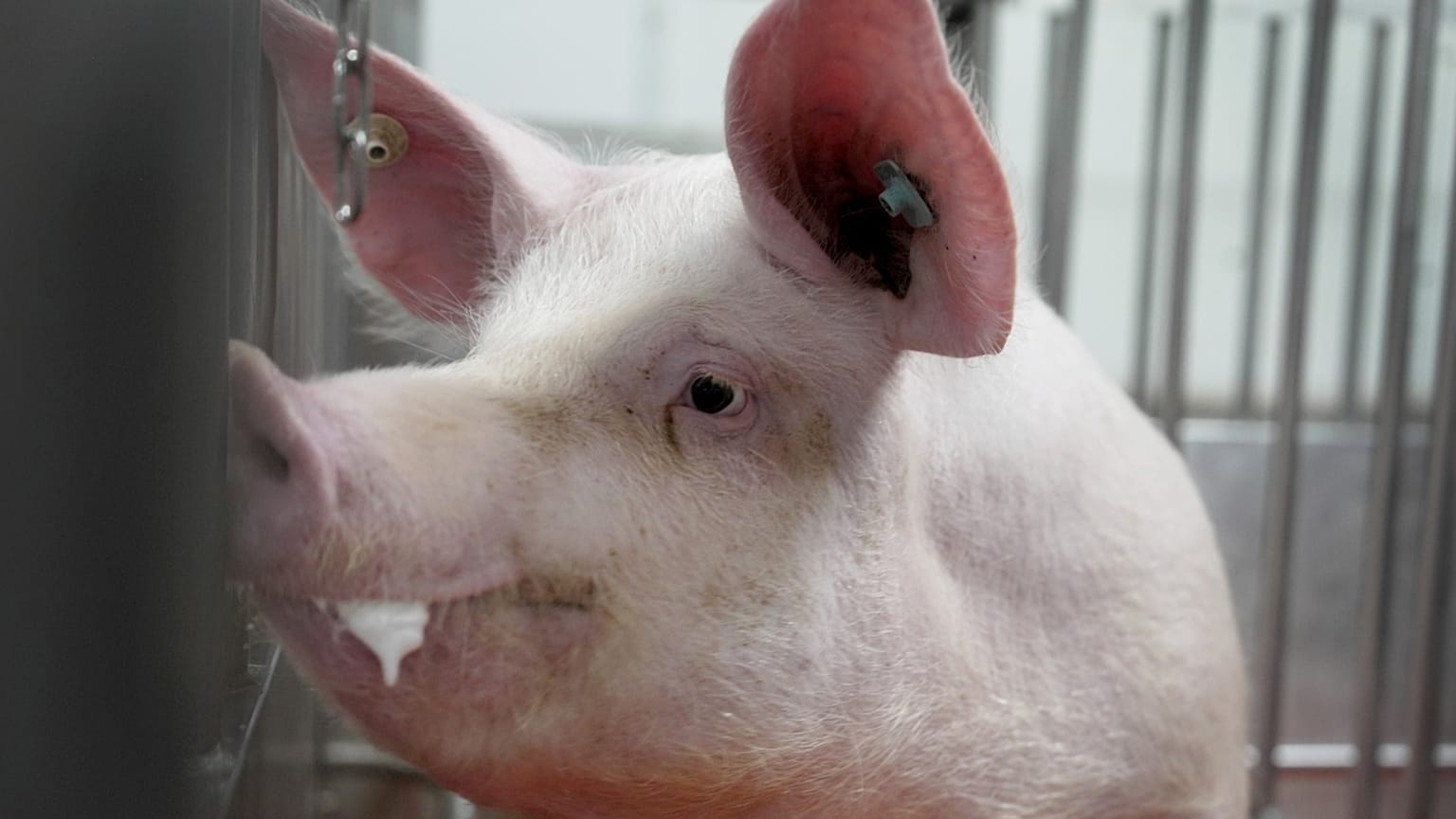Science
Pioneering Clinical Trial of Pig Kidney Transplants Begins in US

A groundbreaking clinical trial testing pig kidney transplants in humans has commenced in the United States. This initiative aims to explore the potential of xenotransplantation as a viable solution to the severe organ shortage crisis. United Therapeutics, a leading producer of gene-edited pig kidneys, announced that the first successful transplant was completed at NYU Langone Health in New York City.
The trial will initially involve six participants, with plans to expand to up to 50 as additional transplant centers join. Dr. Robert Montgomery, the lead surgeon for the transplant team at NYU, confirmed that other patients have expressed interest in participating. Specific details about the timing of the initial surgery and patient identities remain confidential to protect privacy.
Advancements in Xenotransplantation
This trial marks a significant advancement in the field of xenotransplantation, which has been under investigation for years. A second company, eGenesis, is expected to launch its own pig kidney clinical trial in the coming months, further propelling research in this area. The trial at NYU is notable as it represents the first known clinical trials of its kind globally.
The U.S. Food and Drug Administration (FDA) has approved these rigorous studies following a series of “compassionate use” cases that yielded mixed outcomes. Initial transplants involving gene-edited pig kidneys were short-lived, prompting doctors to reconsider their approach. In one instance, a woman received a pig kidney that functioned for 130 days before she had to resume dialysis. Another patient at Massachusetts General Hospital set a record with a pig kidney lasting 271 days before experiencing decline and returning to dialysis last month.
Research indicates that over 100,000 individuals in the U.S. are currently on the transplant list, primarily for kidney transplants, with thousands dying each year while awaiting suitable organs. In Europe, more than 10,000 people are on the kidney waiting list across eight countries, according to the Eurotransplant International Foundation.
Genetic Modifications for Better Compatibility
To address the organ shortage, scientists are genetically modifying pigs to create organs that closely resemble human ones. This modification aims to reduce the likelihood of immediate rejection by the human immune system. United Therapeutics’ trial focuses on pig kidneys with ten gene edits. These edits involve removing specific pig genes that trigger early rejection and excessive organ growth, while also adding human genes to enhance compatibility.
As researchers learn from each transplant experience, there is growing optimism in the medical community about the future of xenotransplantation. “This thing is moving in the right direction,” said Dr. Montgomery. He emphasized that the ability to return to dialysis offers a safety net for patients involved in these pioneering trials.
Overall, this clinical trial reflects a hopeful step forward in addressing the urgent need for organ transplants, potentially saving countless lives in the process.
-

 Top Stories2 months ago
Top Stories2 months agoTributes Surge for 9-Year-Old Leon Briody After Cancer Battle
-

 Entertainment3 months ago
Entertainment3 months agoAimee Osbourne Joins Family for Emotional Tribute to Ozzy
-

 Politics3 months ago
Politics3 months agoDanny Healy-Rae Considers Complaint After Altercation with Garda
-

 Top Stories3 months ago
Top Stories3 months agoIreland Enjoys Summer Heat as Hurricane Erin Approaches Atlantic
-

 World4 months ago
World4 months agoHawaii Commemorates 80 Years Since Hiroshima Bombing with Ceremony
-

 Top Stories2 months ago
Top Stories2 months agoNewcastle West Woman Patricia Foley Found Safe After Urgent Search
-

 Top Stories4 months ago
Top Stories4 months agoFianna Fáil TDs Urgently Consider Maire Geoghegan-Quinn for Presidency
-

 World4 months ago
World4 months agoGaza Aid Distribution Tragedy: 20 Killed Amid Ongoing Violence
-

 World4 months ago
World4 months agoCouple Convicted of Murdering Two-Year-Old Grandson in Wales
-

 World4 months ago
World4 months agoAristocrat Constance Marten and Partner Convicted of Infant Murder
-

 Top Stories3 months ago
Top Stories3 months agoClimbing Errigal: A Must-Do Summer Adventure in Donegal
-

 Top Stories3 months ago
Top Stories3 months agoHike Donegal’s Errigal Mountain NOW for Unforgettable Summer Views









